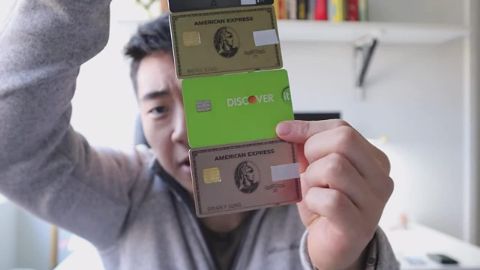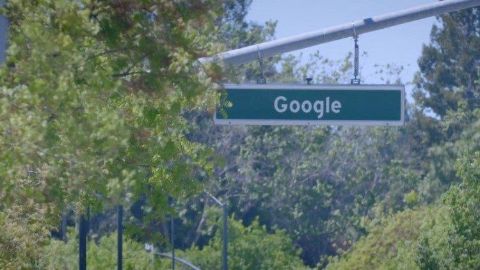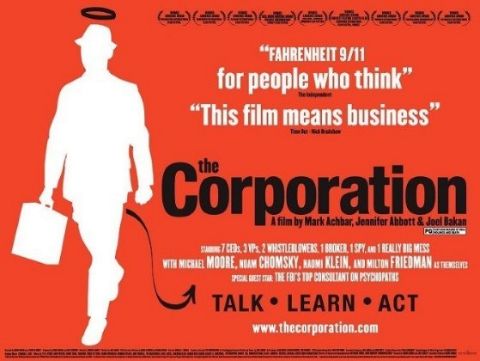You might also like
The convenience of credit cards comes at a price. From the methods banks use to maximize profits to a debt myth debunked, take a look inside the system.
S1E2 • Money Explained • 2011 • Economics
This episode explains how politicians turned to the same techniques used by business in order to read and manipulate the inner desires of the masses. Both New Labor with Tony Blair and the Democrats led by Bill Clinton, used the focus group which had been invented by psychoanalysts in order to regain power.
S1E4 • The Century of the Self • Economics
The role of the Federal Reserve’s “easy money” policies in the current economic uncertainty. From the Great Recession to the rise in inflation, FRONTLINE examines the ongoing fragility of the financial system and the widening gap between Wall St. and Main St.
2023 • Economics
Robert Peston travels to China to investigate how this mighty economic giant could actually be in serious trouble. China is now the second largest economy in the world and for the last 30 years China's economy has been growing at an astonishing rate. While Britain has been in the grip of the worst recession in a generation, China's economic miracle has wowed the world. Now, for BBC Two's award-winning strand This World, Peston reveals what has actually happened inside China since the economic collapse in the west in 2008. It is a story of spending and investment on a scale never seen before in human history - 30 new airports, 26,000 miles of motorways and a new skyscraper every five days have been built in China in the last five years. But, in a situation eerily reminiscent of what has happened in the west, the vast majority of it has been built on credit. This has now left the Chinese economy with huge debts and questions over whether much of the money can ever be paid back. Interviewing key players including the former American treasury secretary Henry Paulson, Lord Adair Turner, former chairman of the FSA, and Charlene Chu, a leading Chinese banking analyst, Robert Peston reveals how China's extraordinary spending has left the country with levels of debt that many believe can only end in an economic crash with untold consequences for us all.
This World • 2014 • Economics
Jamie Bartlett uncovers the dark reality behind Silicon Valley's glittering promise to build a better world. The tech gods believe progress is powered by technology tearing up the world as it is - a process they call disruption. He visits Uber's lavish offices in San Francisco and hears how the company believes it is improving our cities. But in Hyderabad in India, Jamie sees for himself the human consequences of Uber's utopian vision - drivers driven to suicide over falling earnings. Riding shotgun in a truck as it drives itself for more than a hundred miles on a highway, Jamie asks what the next wave of Silicon Valley's global disruption - the automation of millions of jobs - will mean for all of us. In search of answers, he gets a warning from an artificial intelligence pioneer who is replacing doctors with software - an economic shock is coming, faster than any of us have realized. Jamie's journey ends in the remote island hideout of a former Facebook executive who has armed himself with a gun because he fears this new industrial revolution could lead to social breakdown and the collapse of capitalism.
S1E1 • Secrets of Silicon Valley • 2017 • Economics
One hundred and fifty years ago, the corporation was a relatively insignificant entity. Today, it is a vivid, dramatic and pervasive presence in all our lives. Like the Church, the Monarchy and the Communist Party in other times and places, the corporation is today's dominant institution. But history humbles dominant institutions. All have been crushed, belittled or absorbed into some new order. The corporation is unlikely to be the first institution to defy history. Based on Joel Bakan's book, "The Corporation: The Pathological Pursuit of Profit and Power," this documentary is a timely, critical inquiry that examines the very nature of the corporation--its inner workings, curious history, controversial impacts and possible futures. We begin by learning that under the law, corporations have all the rights and yet few of the responsibilities of people. By viewing the behavior of the corporation through the prism of Diagnostic and Statistical Manual (or DSM III, the gold standard of psychiatric evaluation) the filmmakers discover that if the corporation were indeed a person, the person would be considered a psychopath. Featuring candid interviews with CEOs, whistle-blowers, brokers, gurus, spies, players, pawns and pundits, the chronicle charts the spectacular rise of an institution aimed at achieving specific economic goals as it also recounts victories against this seemingly invincible force. Once you see it, you may find yourself thinking twice about what you eat, what you wear, what you watch and what you read.
2003 • Economics





